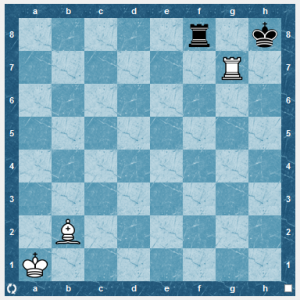Back in secondary school, I was part of an ill-fated three man chess club. We were terrible. Our supervisor, while well intentioned, was beatable by complete rank amateurs (read: us). It was not an environment under which we could grow as players, but we were having a blast, so who cared?
Fast forward over ten years. Now in my mid-twenties, with zero chess experience since then, I came across an article on Hacker News with the straightforward title ‘How to get Good at Chess, Fast‘. Having barely thought of the game in the intervening years, the link piqued my interest. I could feel my competitive side stirring. With a single click I was drawn back in to the domain of rooks and knights.
It turns out that there’s quite the system to becoming a good chess player. Like you’d expect, a key component is a willingness to play the game! What may be surprising is the amount of tactical study required to made any sort of headway (of course, there are prodigies who learn incredible amounts from their own games with little effort). Strictly speaking, you are not studying to memorise: one is aiming to train their pattern recognition abilities by observing and reasoning about thousands of positions. By doing so, they begin to gain an intuitive grasp and understanding of the game, allowing the skilled player to analyse a board and next few moves with a reasonable amount of insight. Being able to accurate determine the consequences of a particular move, and being able to use those consequences to gain material (win pieces) is known as being capable of tactical play. Tactics are short-term, sometimes two moves in length, often more. If you know that an opponent must react in a certain way in response to your play in order to maintain the material balance, get out of check, or avoid checmate, such tactics are said to employ forcing moves.
But perhaps this is learning to run before one can walk. Also put forward in the article is the idea of training the eye to automatically see certain tactical positions instantly, with such a skill granting a great boon when getting through the aforementioned thousands of exercises. Without such an ability to pinpoint the so-called forks and skewers, a player would spend far longer on the exercises than would be desirable for fast growth. By training the eye, certain opportunities arise automatically.
I’ve been applying the principles set forth in the article, and indeed I have noticed an increase in my tactical ability! The sheer number of exercises involved means memorisation is all but impossible, so subsequent attempts continue to directly test your tactical skill. The article recommends a full seven rounds of the exercises you choose to do. I’m working my way through Chess Tactics for Beginners. I’ll write up a review of it one of these days, but here’s a look at one of my favourite positions so far:

Despite my tactical practice, I have yet to win a single game on the popular lichess website, making huge strategic blunders in the mid game. Indeed, my ability to form strategy is poor, and I constantly overlook moves that end up costing me powerful pieces and positions. To view a computer analysis of any of my games would reveal an ability to hold my own.. In the first four or five moves. This is often followed by a subtle decline in positional advantage, followed by complete and utter ruin.
With tactics eventually falling in to place, one must turn their mind to strategy: The long game of positioning your pieces for maximum tactical advantage. Initial strategic ability is not built through thorough analysis of openings and the mid game, but rather through analysis of your own mistakes. The opening is less about of doing well, and more about not making position-destroying mistakes.
So I will continue to play and learn, and once I am confident, I will try leaving the virtual world of lichess, just for a while, and seek out the local chess clubs. Making a physical debut will be quite exciting if I have the skills to back it all up! If you ever want to play with me (over the board, or online!), hit me up and we’ll give it a go! Only if you promise to analyse the game with me after, of course..